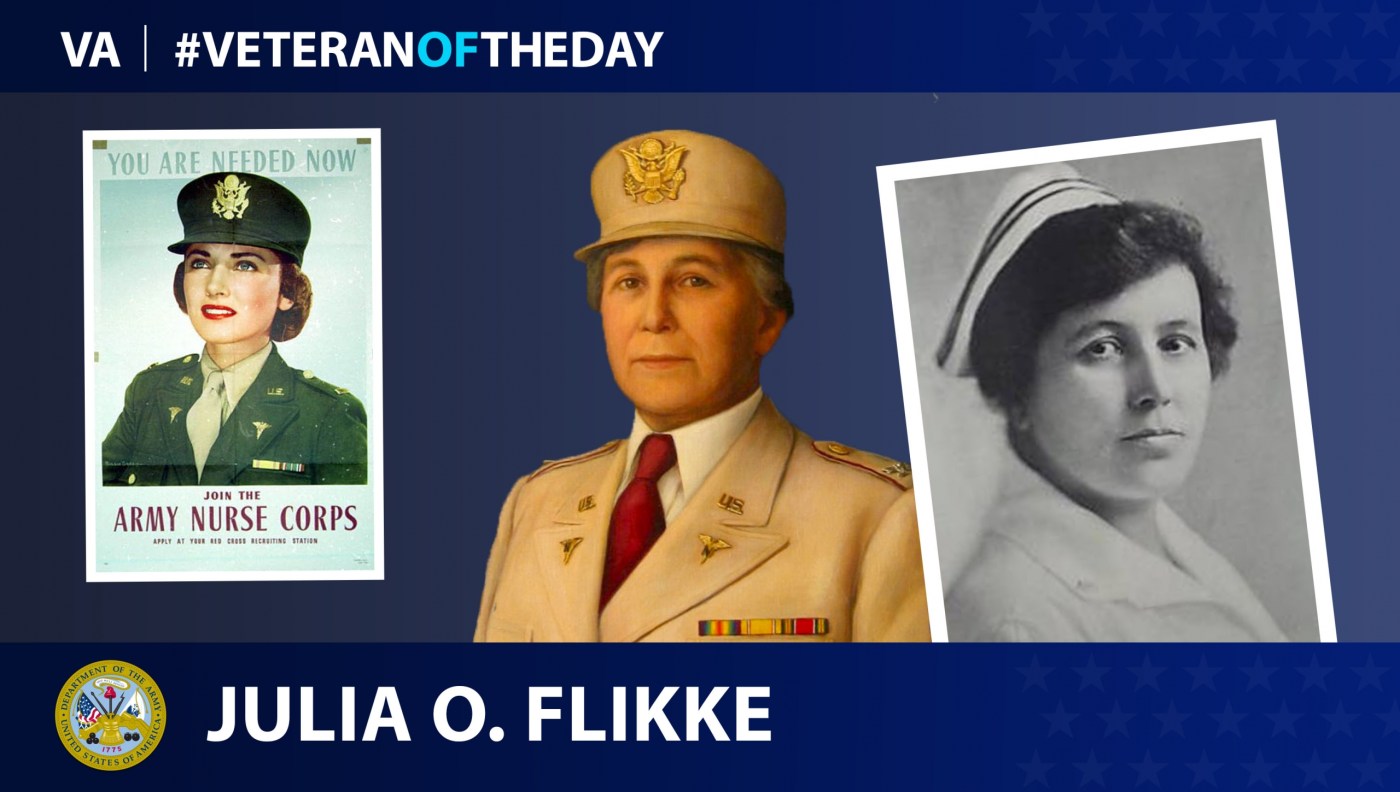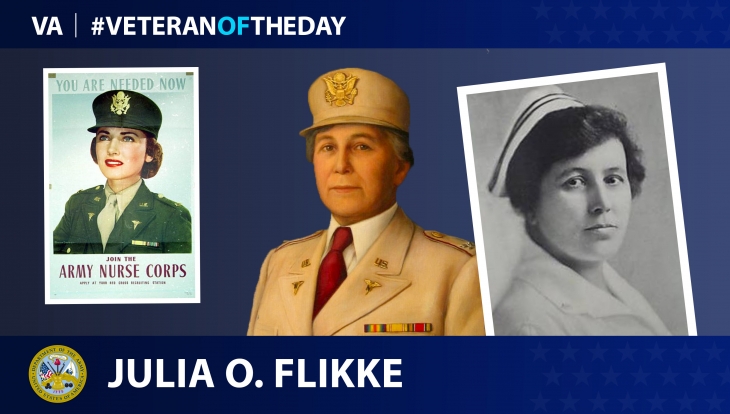Julia O. Flikke was born to Solfest and Kristi Otteson in Viroqua, Wisconsin, in March 1879.
After she graduated from Viroqua High School, she worked as a teacher. Two years later, she married Arne T. Flikke, who died from tuberculosis in 1911.
The loss of her family inspired Flikke to enroll in the School of Nursing at Augustana Hospital in Chicago in 1912. She graduated in 1915. She then studied at Columbia University to research nursing education and administration. She soon became assistant superintendent of nurses at Augustana Hospital. On March 11, 1918, she joined the United States Army Nurse Corps.
Flikke’s military career began at the United States Army General Hospital in Lakewood, New Jersey. After passing the chief nurse examination, she was appointed chief nurse of the Augustana unit, Base Hospital #11. The unit shipped to Nates, France, in August 1918 until the end of the war, caring for wounded soldiers from the Argonne front. She returned to the United States and served in New York and Arkansas before being promoted to first lieutenant and assigned to the Philippine Department. She served at the Fort William McKinley Station Hospital before relocating to Tientsin, China.
In 1922, she became chief nurse of Walter Reed General Hospital in Washington, D.C., staying for an additional 12 years. From 1934 to 1936, Flikke worked at Fort Sam Houston’s Station Hospital as chief nurse. At the start of the new year, in 1937, she returned to the Surgeon General’s Office in Washington, D.C., later becoming superintendent of the Army Nurse Corps.
Flikke led the Army Nurse Corps’ daunting attempts to hire, dress and appoint the largest number of nurses ever mobilized. The publishing of her book, “Nurses in Action: The Story of the Army Nurse Corps,” was the most straightforward and lasting evidence of her attempts to recruit nurses during the war. Army nurses were granted commissions ranging from second lieutenant to colonel under Public Law 828, which was passed in December 1942. Flikke went on to become the Army’s first female to hold the rank of colonel. While temporary, her status was a monumental step in granting full military ranks and privileges to women.
In June 1943, Flikke retired from the Army with disability. She may have only served as superintendent and chief of the Army Nurse Corps for a six-year term, but it was characterized by abrupt shifts from peacetime to wartime, which proved to be a difficult task.
In 1944, Wittenberg College in Springfield, Ohio, awarded Flikke an honorary Doctor of Science degree for her national service.
She returned home to Takoma Park, Maryland, and spent her final years in Washington, D.C.’s National Lutheran Home for the Aged. She died on Feb. 23, 1965, at the age of 86 and was laid to rest in Arlington National Cemetery.
We honor her service.
Nominate a Veteran for #VeteranOfTheDay
Do you want to light up the face of a special Veteran? Have you been wondering how to tell your Veteran they are special to you? VA’s #VeteranOfTheDay social media feature is an opportunity to highlight your Veteran and his/her service.
It’s easy to nominate a Veteran. Visit our blog post about nominating to learn how to create the best submission.
Writer: Adrienne Brookstein
Editor: Christopher Wilson, Julia Pack
Fact checker: Kay Snyder
Graphic artist: Katie Rahill
Topics in this story
More Stories
This week’s Honoring Veterans Spotlight honors the service of Air Force Veteran Heather Wilson, who served in the United Kingdom, Belgium and Washington, D.C.
This week’s Honoring Veterans Spotlight honors the service of Army Veteran David Hickman, who served during the Iraq War.
This week’s Honoring Veterans Spotlight honors the service of Air Force Veteran Luther H. Smith, who served in Italy during World War II.







We honor the service of Julia O. Flikke.